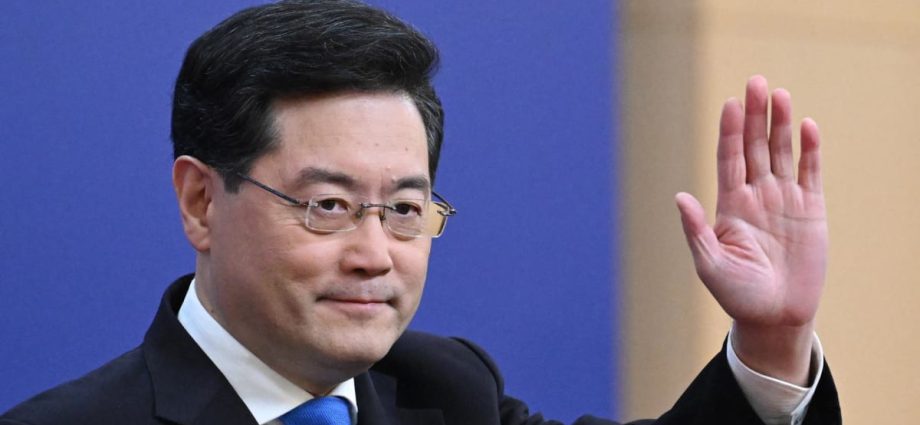
On Jul 17, when asked to confirm whether Qin was still the foreign minister, Mao told the reporter to check the ministry’s website which listed Qin as the foreign minister and said she did not have any new information. So, a foreign ministry spokesperson could not directly confirm the foreign minister was still the foreign minister, and a reporter had to check the ministry’s website to confirm he was?
Mao has my sympathy, though. She knew the Qin-related questions would pop up every day she walked into the briefing room, but apparently, she was not authorised to say anything on that matter, not even to confirm that Qin was still foreign minister even though on paper he was.
Also, Mao’s exchanges with foreign reporters over Qin were all excluded from the readouts in the ministry’s website, keeping up the charade that “China’s diplomatic activities are moving forward normally”.
OLD HABITS DIE HARD
The shoe finally dropped on Tuesday (Jul 25) when the National People’s Congress Standing Committee replaced Qin with Wang Yi, his predecessor. At the briefing next day, Mao continued her stonewalling strategy by referring reporters to Xinhua reports as to why her former boss was removed – but Xinhua reports did not give any reason.
Meanwhile, the ministry was busy scrubbing Qin’s name and speeches from the official website, as if his seven-month tenure had not happened at all. One section which listed China’s foreign ministers since the People’s Republic was founded in 1949 no longer includes Qin. He was only listed as China’s ambassador to the United States from 2021 to 2023.
On Friday, the ministry quietly began to reinstate references to Qin which were erased on Tuesday, apparently because of intense media scrutiny. But the damage was done.
Old habits die hard. The ministry’s actions remind me of the antics popular in the heyday of Mao Zedong after leaders were purged. Such moves are counterproductive and ridiculous.

